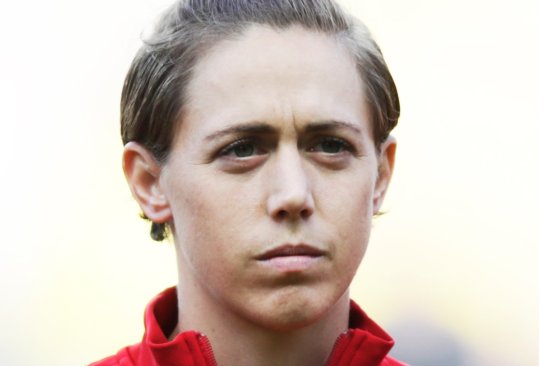
Defender Meghan Klingenberg talks why the players shifted from demanding equal pay with the U.S. men's team to equitable pay.
The U.S. Women’s national team’s players union reached a new five-year collective bargaining agreement with U.S. Soccer last week after more than a year of contentious labor negotiations. While USMNT and USWNT players are paid per appearance for the national team, most USWNT players also have their salaries in the National Women’s Soccer League paid for by U.S. Soccer, something the USWNT didn’t want to give up.
SI: What’s your reaction to having the CBA done?
MEGHAN KLINGENBERG: I’m just really proud of the commitment to what we wanted and sticking together and organizing ourselves in a way that we were able to get exactly what we thought was fair and what we thought should be in the CBA.
[time-brightcove not-tgx=”true”]
SI: Why was it important for the players to be so involved in the talks after not being as big a part of them in 2016?
MK: We felt this was our contract, our lives. This is what we play for, and we wanted to set ourselves up and the players that come after us in the best way possible to do great things on and off the field.
SI: The U.S. women’s players ended up not getting exactly equal pay to the men’s team, but you still consider this deal a major victory. Why?
MK: We didn’t feel like we were ready to go to pay-to-play, even though that’s something we want to move toward. So we thought “fair and equitable” was the best way to go. We tried to negotiate a win-win deal where U.S. Soccer feels good on its side and we feel good on our side, because we knew that we’d have to work with each other after this deal was finished.
SI: With labor deals for your team and for the U.S. women’s hockey team, is this a historic moment in women’s sports?
MK: Absolutely. Staying unified and speaking out about what’s right, what’s fair, what’s equitable—those are really important, not only in sports but in women’s history. We feel this also lays the groundwork for future deals for players that come after us.
SI: How will this labor deal have an impact on future players?
MK: We won’t have any restrictions on floater players this year, so players who aren’t under contract will be able to come in to camp and train with the U.S. team so they can keep getting better. And the improved NWSL standards that we put into our CBA don’t benefit national team players alone—they benefit those in the NWSL as well. By making that platform better, it’ll make our national team better.
SI: We’re seeing women’s soccer players pushing their federations for better support in places like Ireland. Do you hope that your deal can be an example for other women’s soccer players around the world?
MK: I hope they’re inspired. I hope those players feel like they’re worth it, that women’s rights and pay equity is a righteous cause.
For more of Wahl’s interview with Klingenberg, go to si.com/klingenberg